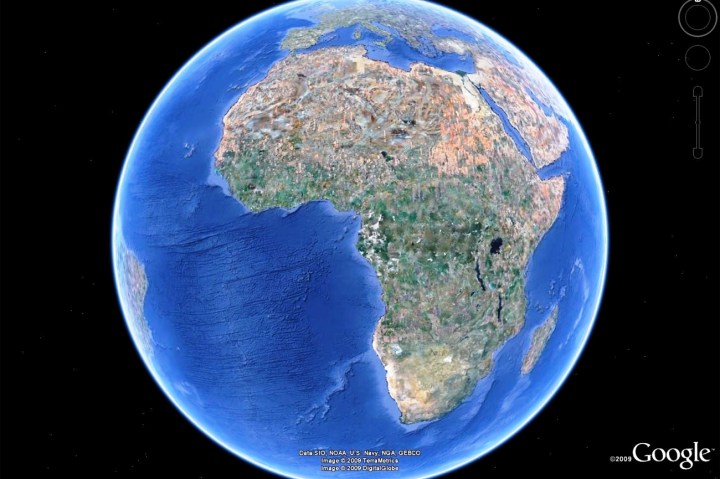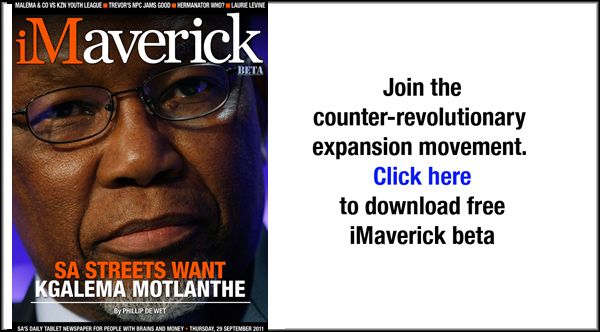Africa
Rebranding Africa must begin with fixing African problems

On Thursday, Brand South Africa and the Brand Leadership Academy hosted this year’s edition of the Brand Africa Forum, which was established to “proactively drive Africa’s reputation, image and competitiveness”. By KHADIJA PATEL.
The forum tackled an array of issues affecting the growth, reputation and competitiveness of Africa. Global thought leaders, businesspeople and decision makers gathered at the Sandton Convention Centre to have their say on the way forward for the continent, highlighting governance and sustainability, growth-enabling policies, as well as business and its role in shaping the continent’s economic future. Branding is an essential tenet to modern life but the act of branding is not limited to the outer veneer of a product. In the boardrooms and factories that cater to our rapacious tendencies towards consumption, branding is not an afterthought. Branding, when applied thoughtfully, informs the entire production process. When a confectionary company, for example, launches a new biscuit, agonising decisions are made about the width, shape, colour, packaging and name of the product. All of these seemingly trifling details contribute towards furnishing the biscuit with a brand as dynamic as a personality.
Africa is of course no biscuit.
In the minds of millions of people around the world, Africa already has a personality. Africa already has a brand. Unlike the biscuit, Africa is not a product anybody can now create and then present to the world in a box. Africa, replete with its beguiling beauty and confounding chaos, has been a victim of unfortunate branding. The continent is dogged by a negative reputation. In the minds of millions of people around the world, the very mention of “Africa” conjures about notions of corruption, war, poverty, malnutrition and disease. Of course there is more to Africa than that. Often it is the hapless foreigners who are blamed for unfairly associating Africa with all that is negative, but at the Brand Africa Forum on Thursday, it emerged that it remained for Africans themselves to unshackle from the pejorative branding of the continent.
In the ten years leading to 2010, six of the world’s ten fastest-growing economies were in sub-Saharan Africa. The International Monetary Fund (IMF) predicts that in the next five years, African states will assume seven of the top ten places on the list of the world’s fastest-growing economies. The economic future of the world is certainly being driven on this continent. In an uncanny echo of a new reality unfolding even while the forum met, street-poles in Sandton, advertising the headlines from Johannesburg’s newspapers, announced that South Africa was considering a “euro rescue”. While Europe dithers to find a solution to its debt crisis, Africa is primed to fulfil its great potential. Those endowed with the astounding ability to accurately decipher the jargon of economic data are rushing towards Africa, eager to claim their stake. Africa is once more lucrative to the rest of the world. How does the purported profitability of Africa translate to the reality of its people?
Reports last month indicated that Ghana was the world’s fastest growing economy in the first half of this year. Ghana’s Gross Domestic Product (GDP), estimated to be 20.146% in the first six months of this year, was far ahead of the 14.337% recorded by Qatar as the next fastest-growing country. During a panel on governance and sustainability at Brand Africa Forum on Thursday, Dr Jacqueline Chimhanzi sought to find out exactly how much Ghana’s prodigious rise has benefitted its own people. Chimhanzi is the Africa lead for Deloitte Consulting in South Africa and told delegates that she had recently resumed acquaintance with an old Ghanaian school friend through the LinkedIn social network. While excitedly rekindling the friendship, Chimhanzi warmly congratulated her Ghanaian friend for being a citizen of one of the world’s fastest growing economies. Her friend however was incredulous. Chimhanzi went on to reassure her friend that Ghana was indeed on a meteoric rise in the world economy, but her friend remained unconvinced. “Life is so hard here,” she said. Chimhanzi then deftly pointed her tale to Dr Joseph Annan, deputy minister of trade and industry in Ghana. How could he explain such a stark contradiction. Annan expressed no surprise at the tale. He conceded that for many Ghanaians, the economic fortunes of the country were yet to translate to tangible benefits. He stressed that Ghana’s macro-economic outlook meant that it would be some time before ordinary Ghanaians yielded positive effects in their livelihoods. “In Ghana, we’re always in a hurry but invariably late,” Annan said. He emphasised the need for Ghana – and the continent – to think of long term, sustainable solutions instead of sourcing short term quick fixes.
While Annan was impressive, he was not the star statesman of the forum. Professor Arthur Mutambara, Deputy Prime Minister of Zimbabwe was a stellar brand ambassador for his country. A rocket scientist who once plied his trade for Nasa, Mutambara was also an associate professor in the aeronautics and astronautics department at the acclaimed Massachusetts Institute of Technology (MIT). Mutambara won applause for pointing out that as Africans, “We are good at talking and planning but poor at implementation.” While Mutambara was open about Zimbabwe’s own economic challenges, showing delegates graphics that showed how all economic indices returned a poor prognosis for his country, he feels that Africa’s future lies in regional integration. South Africa’s integration into Brics, he argues, makes little sense with South Africa’s relatively small population. South Africa’s position in Brics would be enhanced if it carried the Southern African Development Community with it to the Brics table, he says.
Mutambara’s sentiment was echoed by several other speakers who all feel South Africa’s inclusion into Brics only makes sense if it carries “Africa” along. Mutambara however made a crucial point in the plight of rebranding Africa. “Africans,” he said, “will not be respected as long as Africa has not succeeded as a continent.” Mutambara indicated that the best branding efforts faced failure with a sub-standard product. “Before you try branding your country, make sure you have a product worth endorsing,” he punched out.
In order then for Africans to begin looking at their own situations differently and thus redirect the branding of Africa from within, the abysmal reality of many Africans must be changed.
London-based economist Dr Dambisa Moyo lambasted aid agencies for continuing to use images of emaciated African children to raise funds while poverty in India, she believes, is far more desperate. In the emphasis on rebranding Africa as a bastion of hope, prosperity and economic growth, we face the possibility of denying harsher realities. While in the minds of foreigners the African brand has undoubtedly been the object of misconceptions and stereotyping, it is essential for Africa to address the challenges that do exist. Somalia sticks out as a collective African failure. War and famine rage in Somalia undisturbed by the optimistic economic outlook for the continent.
It fell to a representative of Agra, Alliance for a Green Revolution in Africa, to point out, “Africa cannot build a brand without addressing the food security”. Rebranding remains a noble, albeit futile exercise without addressing underlying issues like food security. Africa is doomed to have a repeat of the Somali famine of this year if rebranding does not extend to actually fixing the “product” we represent. DM
Read mores:
- Building a thriving African brand in Media Club South Africa;
- Reconceptualising the African brand: Brand Africa in The Just Cause.




















 Become an Insider
Become an Insider